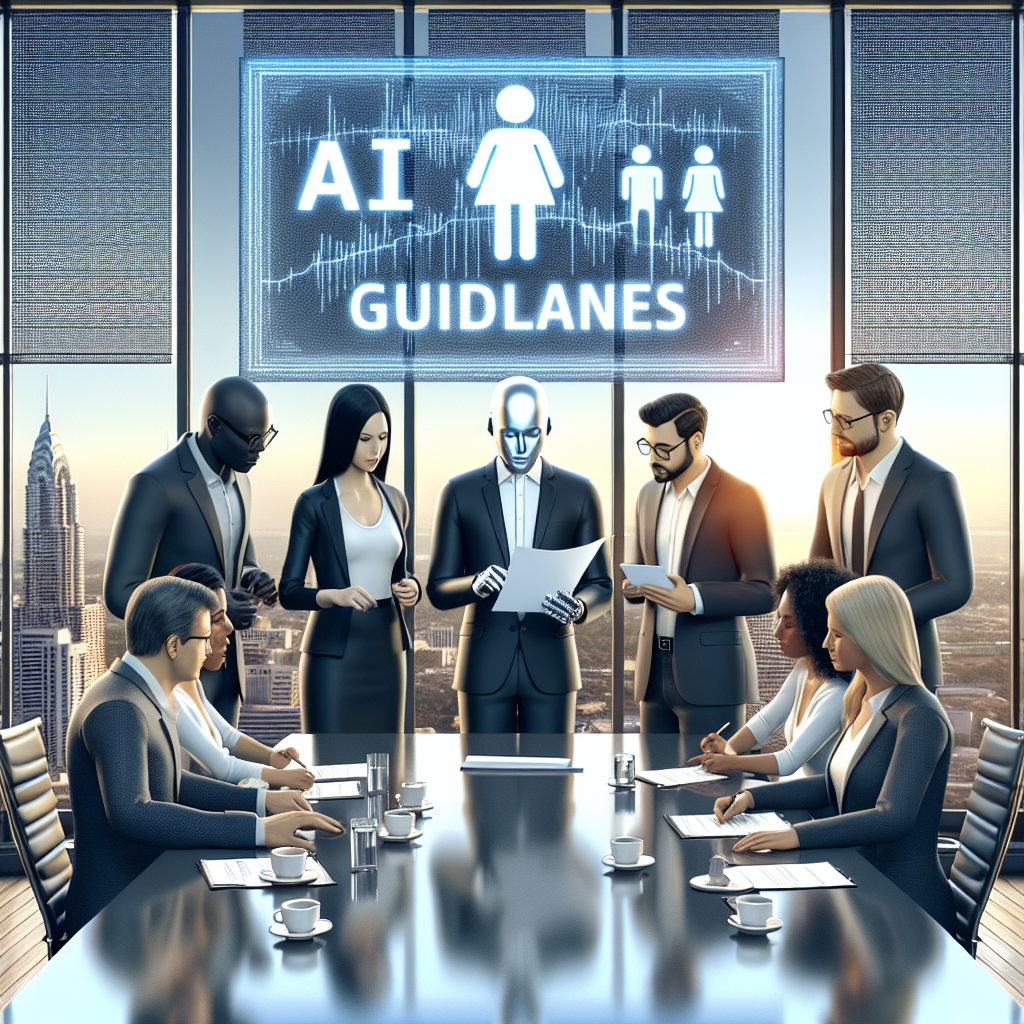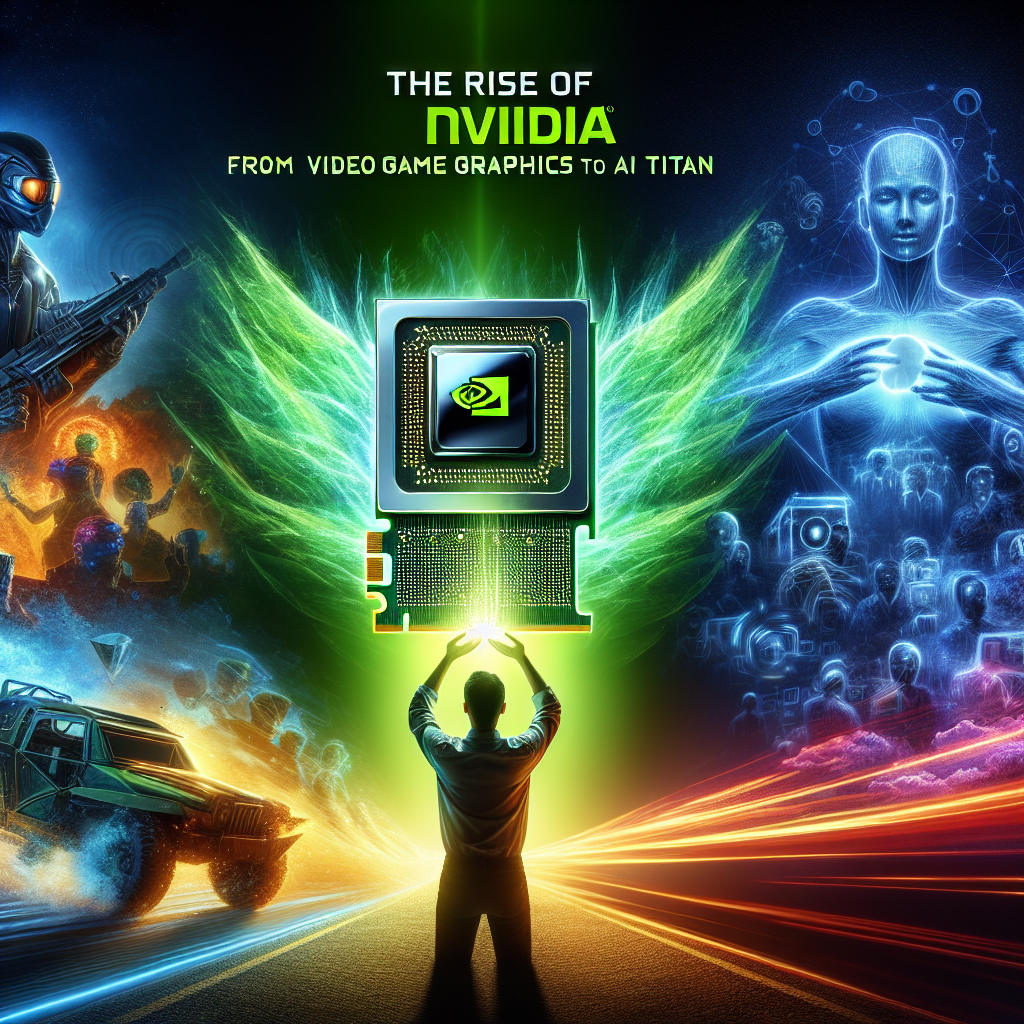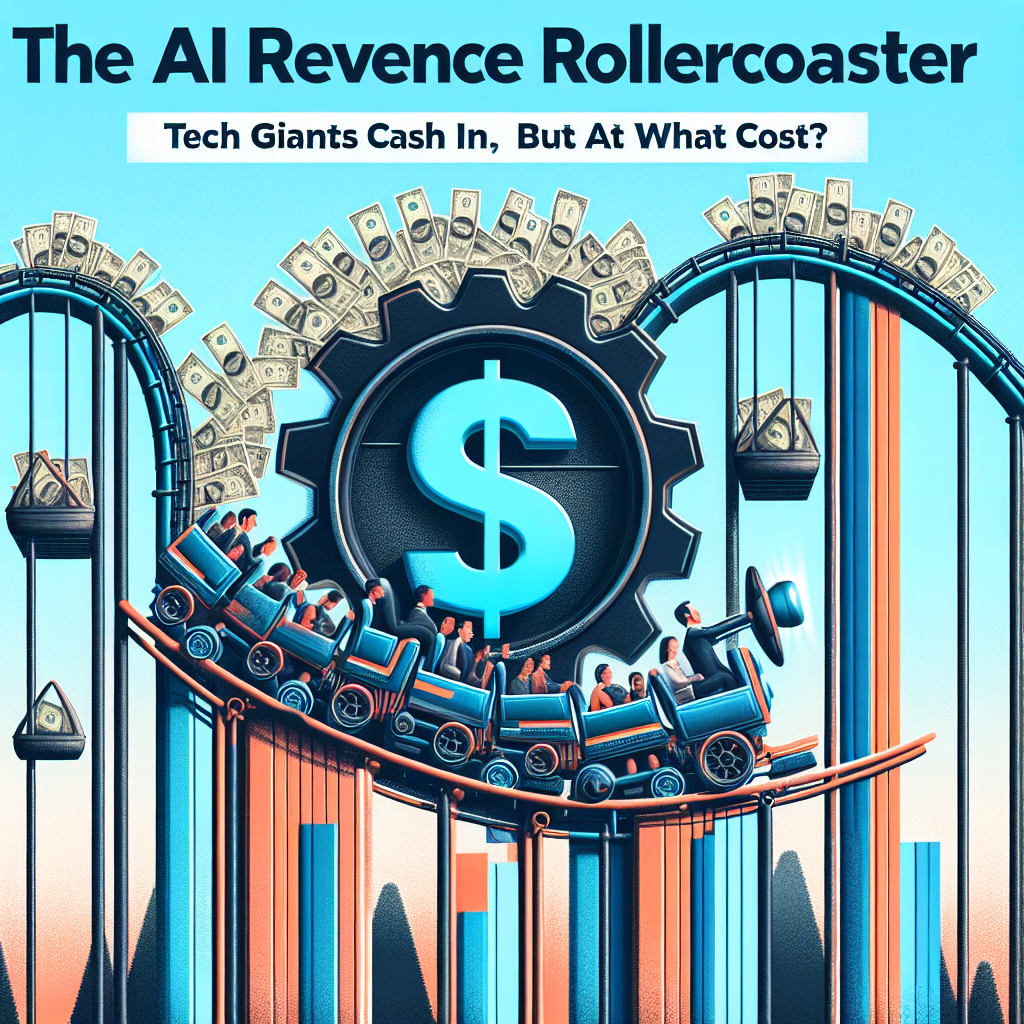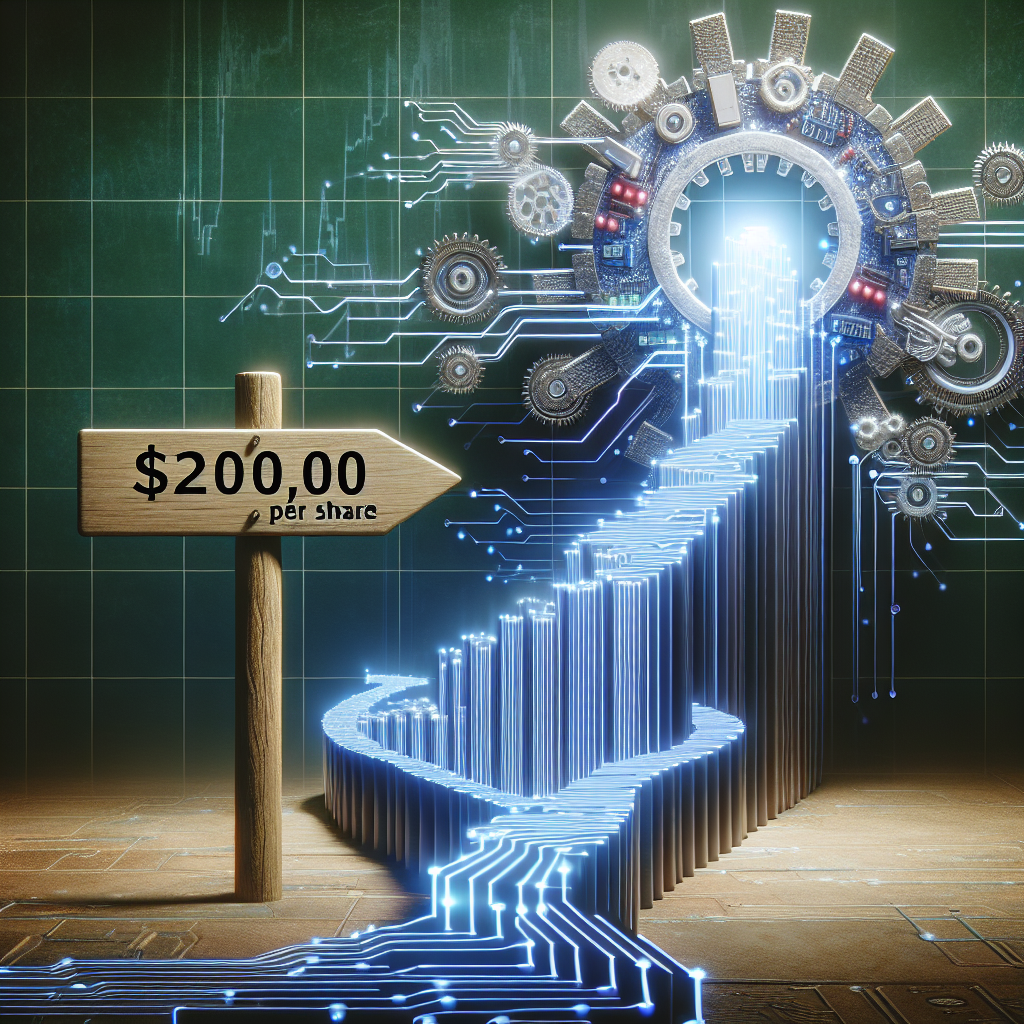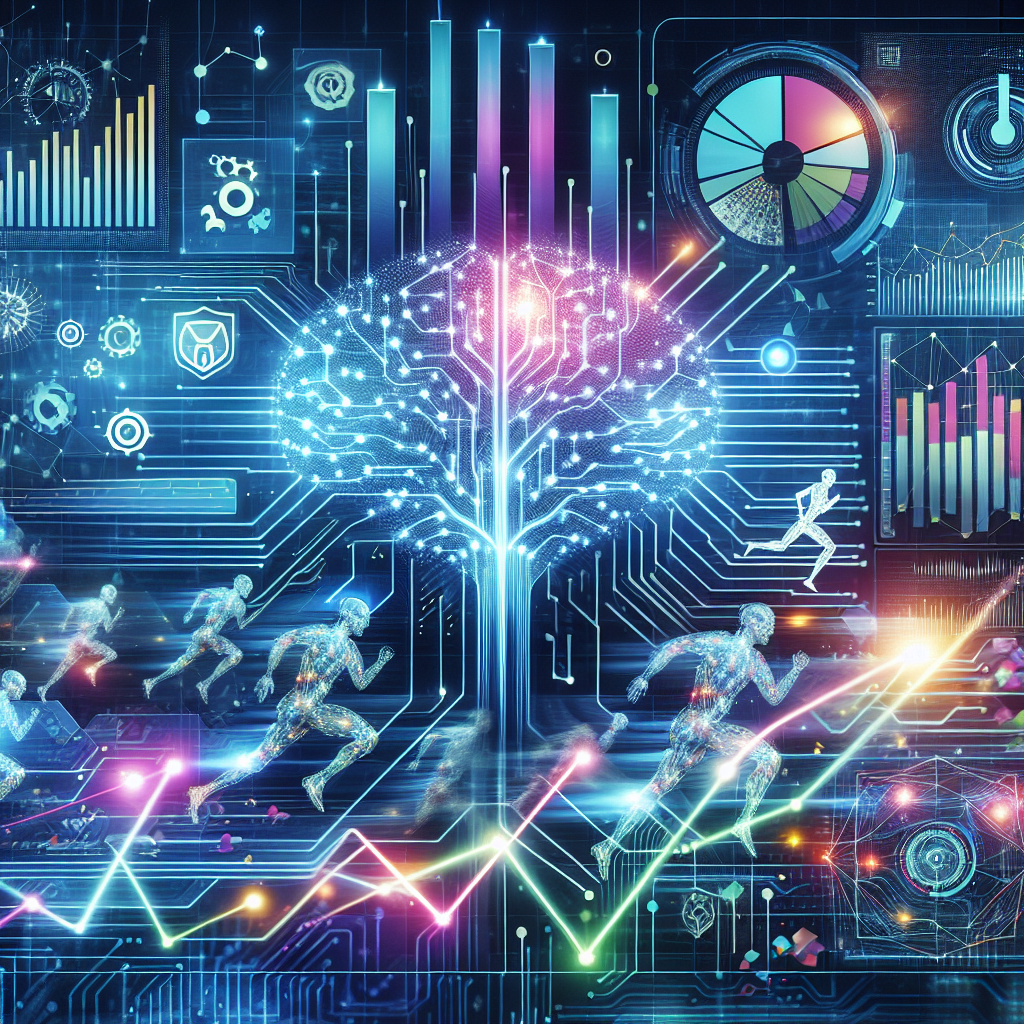Ensuring Artists’ Rights: SAG-AFTRA and Major Music Companies Forge Historic Agreement on AI Guidelines
SAG-AFTRA, the Screen Actors Guild-American Federation of Television and Radio Artists, has recently made headlines by reaching a groundbreaking agreement with major music companies on the use of artificial intelligence (AI) in the music industry. This agreement comes as AI technology continues to shape various aspects of the entertainment world, raising important questions about the future of artists and their rights. In this article, we will delve into the details of this agreement, explore the implications of AI in music creation and performance, and discuss the potential benefits and challenges it presents for artists.
As AI technology advances at an unprecedented pace, it has begun to infiltrate various domains of the music industry, from songwriting and composing to performance and production. This has sparked a significant debate about the role of AI in creative processes and the potential impact on human artists. SAG-AFTRA, a union representing over 160,000 professionals in the entertainment industry, has recognized the need to address these concerns and protect the rights of its members.
Key Takeaways
1. SAG-AFTRA and major music companies have come together to establish guidelines for the use of artificial intelligence (AI) in the music industry.
2. The agreement aims to protect the rights and interests of musicians and performers by ensuring fair compensation, creative control, and transparency in AI-generated music.
3. The guidelines emphasize the importance of involving musicians and performers in the AI music creation process, highlighting their unique artistic contributions and ensuring their involvement in decision-making.
4. The agreement also addresses concerns about copyright ownership and control, outlining clear guidelines for the use of AI-generated music and ensuring that musicians are properly credited and compensated for their work.
5. This collaboration between SAG-AFTRA and major music companies sets a precedent for other industries to establish ethical and fair practices in the use of AI technology, highlighting the importance of protecting the rights of creators in the digital age.
Insight 1: Protecting Artists’ Rights and Royalties in the Age of AI
The recent agreement between SAG-AFTRA (Screen Actors Guild-American Federation of Television and Radio Artists) and major music companies marks a significant step forward in addressing the challenges posed by artificial intelligence (AI) in the music industry. One of the key insights from this development is the focus on protecting artists’ rights and ensuring fair compensation in the rapidly evolving landscape of AI-generated music.
With the increasing use of AI technology in music production, there has been growing concern about the potential exploitation of artists’ work and the erosion of their royalties. This agreement aims to establish guidelines that safeguard the interests of musicians and performers, ensuring they are appropriately compensated for their contributions to AI-generated music.
By addressing these concerns head-on, the agreement sets a precedent for future negotiations and collaborations between artists and technology companies. It sends a clear message that artists’ rights and fair compensation should be at the forefront of any advancements in AI-driven music creation.
Insight 2: Balancing Innovation and Artistic Integrity
While the agreement focuses on protecting artists’ rights, it also recognizes the importance of fostering innovation and embracing the potential of AI in music production. This insight highlights the delicate balance between embracing technological advancements and preserving artistic integrity.
AI has the capability to revolutionize music creation, offering new tools and possibilities for artists. However, there is a concern that the increasing reliance on AI-generated music may dilute the uniqueness and creativity of human artistry. The agreement seeks to strike a balance by encouraging the responsible and ethical use of AI in music production, while ensuring that artists’ contributions and creative input remain central to the process.
By establishing guidelines that promote collaboration between artists and AI systems, the agreement aims to harness the potential of AI technology without compromising the authenticity and artistic vision of musicians. This approach acknowledges the transformative power of AI while emphasizing the importance of human creativity in music.
Insight 3: Shaping the Future of the Music Industry
The agreement between SAG-AFTRA and major music companies has broader implications for the future of the music industry as a whole. It reflects a proactive approach to addressing the challenges and opportunities presented by AI, setting a precedent for other stakeholders to follow.
As AI technology continues to advance, it is crucial for industry organizations to establish guidelines and frameworks that protect the rights and interests of artists. This agreement serves as a model for other unions, associations, and industry bodies to negotiate similar agreements, ensuring that artists’ voices are heard and their contributions are valued in the age of AI.
Furthermore, the agreement also highlights the need for ongoing dialogue and collaboration between artists, technology companies, and industry organizations. By working together, stakeholders can shape the future of the music industry in a way that embraces technological advancements while upholding the principles of fairness, creativity, and artistic integrity.
SAG-AFTRA and Major Music Companies: A Historic Agreement
SAG-AFTRA, the union representing actors, singers, and other performers, has reached a groundbreaking agreement with major music companies regarding the use of artificial intelligence (AI) in the creation of music. This agreement marks a significant milestone in the evolving relationship between technology and the entertainment industry.
Understanding the Role of AI in Music Production
AI has rapidly become a powerful tool in the music industry, with applications ranging from generating melodies to enhancing audio quality. This section delves into the various ways in which AI is being utilized in music production and the potential benefits it offers to artists and music companies.
The Concerns Surrounding AI in Music
While AI presents exciting opportunities, it also raises concerns within the music community. This section explores the potential impact of AI on job security for musicians, the fear of AI replacing human creativity, and the ethical implications of using AI-generated music without proper credit or compensation.
SAG-AFTRA’s Role in Protecting Performers’ Rights
SAG-AFTRA has long been an advocate for the rights and fair treatment of performers. This section examines the union’s role in negotiating agreements that ensure artists are compensated for their work and have a say in how their performances are used, even in the age of AI.
The Importance of Guidelines in AI Music Production
As AI becomes more prevalent in the music industry, it becomes crucial to establish guidelines that protect the interests of both artists and music companies. This section discusses the need for clear guidelines that address issues such as ownership, licensing, and attribution of AI-generated music.
Case Studies: AI in Music Production
Examining real-world examples, this section highlights how AI is already being used in music production. From AI-generated compositions to automated mastering, these case studies demonstrate the potential of AI to revolutionize the creative process and enhance the final product.
Ensuring Fair Compensation for AI-Generated Music
With AI playing an increasingly significant role in music creation, it is crucial to establish fair compensation models for artists and performers. This section explores different approaches to compensating musicians for their contributions to AI-generated music and the challenges that arise in determining fair compensation.
The Future of AI in Music: Collaboration or Replacement?
As AI continues to advance, questions arise about the future of human creativity and the role of musicians in a world increasingly driven by technology. This section delves into the ongoing debate surrounding AI’s potential to collaborate with human artists versus replacing them altogether.
Implications for the Entertainment Industry
The agreement between SAG-AFTRA and major music companies sets a precedent for how AI will be integrated into the entertainment industry as a whole. This section explores the broader implications of this agreement and how it may influence future negotiations and collaborations between unions and technology companies.
The agreement between SAG-AFTRA and major music companies on AI guidelines marks a significant step forward in navigating the intersection of technology and the entertainment industry. While challenges remain, this agreement sets the stage for a collaborative and fair future in which AI and human creativity can coexist.
Understanding the Importance of AI Guidelines
Artificial Intelligence (AI) has become increasingly prevalent in the music industry, with AI-generated music compositions and performances gaining popularity. As this technology continues to evolve, it is crucial to establish guidelines to protect the rights and interests of artists and performers.
The Role of SAG-AFTRA
The Screen Actors Guild-American Federation of Television and Radio Artists (SAG-AFTRA) is a labor union representing a wide range of professionals in the entertainment industry. Their involvement in creating AI guidelines for the music industry demonstrates their commitment to safeguarding the rights of musicians and performers.
Collaboration with Major Music Companies
One of the key aspects of this agreement is the collaboration between SAG-AFTRA and major music companies. This collaboration ensures that the guidelines reflect the interests and concerns of both artists and industry stakeholders.
Protecting Intellectual Property Rights
One of the primary focuses of the AI guidelines is the protection of intellectual property rights. With AI’s ability to generate music compositions and imitate the styles of various artists, it is essential to establish clear guidelines to prevent unauthorized use of copyrighted material.
Transparency and Disclosure
The guidelines also emphasize the importance of transparency and disclosure in AI-generated music. It is crucial for consumers and audiences to know when they are listening to AI-generated music rather than a human-created composition. This transparency ensures that artists receive proper recognition for their work and enables listeners to make informed choices.
Fair Compensation for Artists
Another critical aspect of the AI guidelines is ensuring fair compensation for artists and performers. As AI-generated music becomes more prevalent, it is essential to establish mechanisms that guarantee artists receive appropriate royalties and compensation for their contributions to AI-generated works.
Addressing Ethical Concerns
AI technology raises ethical concerns in the music industry. The guidelines aim to address these concerns by establishing ethical standards for the use of AI in music creation and performance. This includes considerations such as the impact on employment opportunities for musicians and the responsible use of AI-generated music.
Continued Evaluation and Adaptation
The agreement between SAG-AFTRA and major music companies also recognizes the need for continued evaluation and adaptation of the AI guidelines. As AI technology advances and new challenges arise, it is crucial to regularly review and update the guidelines to ensure they remain relevant and effective in protecting the rights of artists.
The agreement between SAG-AFTRA and major music companies on AI guidelines marks a significant step forward in addressing the challenges and opportunities presented by AI in the music industry. By focusing on intellectual property rights, transparency, fair compensation, and ethical considerations, these guidelines provide a framework for the responsible and ethical use of AI in music creation and performance.
FAQs
1. What is SAG-AFTRA?
SAG-AFTRA is the Screen Actors Guild – American Federation of Television and Radio Artists, a labor union representing over 160,000 professionals in the entertainment industry, including actors, singers, and other performers.
2. What are AI guidelines?
AI guidelines refer to a set of principles and rules that govern the use of artificial intelligence in various industries. In the context of the music industry, AI guidelines help ensure fair treatment and protection for artists when their voice or likeness is used in AI-generated content.
3. Why did SAG-AFTRA and major music companies reach an agreement on AI guidelines?
The agreement between SAG-AFTRA and major music companies aims to address the growing use of AI technology in creating music and other audio content. It establishes guidelines to protect the rights and interests of artists while embracing the potential benefits of AI in the industry.
4. What does the agreement entail?
The agreement outlines principles such as transparency, consent, and fair compensation for artists when their voice or likeness is used in AI-generated content. It also establishes a process for artists to review and approve the use of their AI-generated performances.
5. How will the agreement benefit artists?
The agreement provides artists with greater control over the use of their voice or likeness in AI-generated content. It ensures that artists are properly compensated and have the opportunity to review and approve the final AI-generated performances using their voice or likeness.
6. Which major music companies are part of this agreement?
The agreement includes major music companies such as Universal Music Group, Warner Music Group, Sony Music Entertainment, and Big Machine Label Group, among others. These companies play a significant role in the music industry and have committed to following the AI guidelines outlined in the agreement.
7. How will the agreement impact the use of AI in the music industry?
The agreement sets a precedent for responsible and ethical use of AI technology in the music industry. It ensures that artists’ rights and interests are protected, while also fostering innovation and creativity in the development of AI-generated music and audio content.
8. Will the agreement limit the creative freedom of artists?
No, the agreement does not limit the creative freedom of artists. Instead, it provides a framework to ensure that artists have a say in how their voice or likeness is used in AI-generated content. It empowers artists to make informed decisions and protects their rights throughout the process.
9. How will the agreement be enforced?
The agreement will be enforced through the collective bargaining process between SAG-AFTRA and the major music companies. Both parties will work together to ensure compliance with the AI guidelines and address any disputes that may arise.
10. What does this agreement mean for the future of AI in the music industry?
This agreement represents a significant step towards establishing ethical standards for the use of AI in the music industry. It paves the way for further collaboration between artists, unions, and major music companies to navigate the evolving landscape of AI technology and ensure that artists’ rights are protected in the digital age.
Concept 1: SAG-AFTRA
SAG-AFTRA stands for Screen Actors Guild-American Federation of Television and Radio Artists. It is a union that represents actors, performers, and other professionals in the entertainment industry. The union negotiates agreements with production companies to ensure fair treatment and protect the rights of its members. In this case, SAG-AFTRA has reached an agreement with major music companies regarding the use of artificial intelligence (AI) in the creation of music.
Concept 2: Major Music Companies
Major music companies refer to the big record labels and music production companies that have a significant presence in the music industry. These companies have a wide range of artists and musicians under contract and are responsible for producing and distributing music. The agreement between SAG-AFTRA and major music companies is significant because it sets guidelines for the use of AI technology in the creation of music.
Concept 3: AI Guidelines
AI guidelines are a set of rules and recommendations that govern the use of artificial intelligence technology. In the context of music, these guidelines provide a framework for how AI can be used in the creation, production, and distribution of music. The purpose of these guidelines is to ensure that AI technology is used in a way that respects the rights and interests of artists and performers, while also promoting creativity and innovation in the music industry.
Common Misconceptions about ‘SAG-AFTRA and Major Music Companies Reach Agreement on AI Guidelines’
Misconception 1: AI will replace human musicians
One common misconception surrounding the recent agreement between SAG-AFTRA and major music companies is that artificial intelligence (AI) will replace human musicians. This fear stems from the belief that AI technology is advancing at such a rapid pace that it will eventually render human musicians obsolete.
However, it is important to note that the agreement reached between SAG-AFTRA and major music companies is not about replacing human musicians with AI. Instead, it focuses on establishing guidelines and standards for the use of AI-generated music and virtual artists in the industry.
AI technology has undoubtedly made significant advancements in music composition and production, but it is still far from being able to replicate the creativity, emotion, and authenticity that human musicians bring to their performances. While AI can assist in certain aspects of music creation, it cannot replace the unique skills and artistic expression of human musicians.
Misconception 2: AI-generated music lacks originality and creativity
Another misconception is that AI-generated music lacks originality and creativity. Some argue that since AI algorithms are based on analyzing existing music data and patterns, the music produced by AI will only be a replication of what already exists.
While it is true that AI algorithms rely on existing data to generate music, it does not mean that the music produced lacks originality or creativity. AI can analyze vast amounts of musical data and generate new compositions that incorporate elements from various genres and styles. This can lead to the creation of unique and innovative musical pieces that may not have been conceived by human musicians.
Furthermore, AI can be used as a tool to assist human musicians in their creative process. It can provide inspiration, generate melodic ideas, or even help with arranging and production. Ultimately, the creative input and artistic vision of human musicians are still essential in shaping the final musical product.
Misconception 3: AI will lead to job losses in the music industry
One of the concerns raised regarding the use of AI in the music industry is that it will lead to job losses for musicians and other industry professionals. The fear is that AI technology will be able to perform tasks traditionally done by humans, such as composition, production, and even performance.
While it is true that AI can automate certain aspects of music creation and production, it is unlikely to completely replace human involvement in the industry. AI technology is more likely to augment the work of musicians and industry professionals rather than replace them.
Moreover, the agreement between SAG-AFTRA and major music companies aims to protect the rights and interests of musicians in the face of increasing AI integration. The guidelines established in the agreement emphasize the importance of transparency, fair compensation, and proper crediting for AI-generated music and virtual artists. This ensures that musicians continue to have a role in the industry and are fairly compensated for their contributions.
Additionally, the use of AI technology can open up new opportunities and avenues for musicians. It can help them reach wider audiences, collaborate with AI-generated virtual artists, and explore new creative possibilities. Rather than leading to job losses, the integration of AI in the music industry has the potential to create new roles and opportunities for musicians and industry professionals.
In conclusion, the recent agreement between SAG-AFTRA and major music companies regarding AI guidelines does not signify the replacement of human musicians with AI. It is crucial to dispel the misconceptions that AI will replace human musicians, that AI-generated music lacks originality and creativity, and that AI will lead to job losses in the music industry. Instead, the agreement focuses on establishing guidelines and standards to ensure fair treatment, transparency, and proper crediting for AI-generated music and virtual artists. AI technology can be a valuable tool in the music industry, assisting human musicians and opening up new creative possibilities.
The recent agreement between SAG-AFTRA and major music companies on AI guidelines marks a significant milestone in the ever-evolving landscape of the music industry. This collaboration demonstrates the industry’s recognition of the potential impact of AI technologies on the livelihoods of musicians and performers. By establishing guidelines that prioritize fair compensation, creative control, and transparency, the agreement aims to protect the interests of artists and ensure that they are not left behind in the age of AI.
Through this agreement, SAG-AFTRA and major music companies have acknowledged the need for a balanced approach to AI integration in music production. The guidelines address concerns such as the use of AI-generated voices and performances, ensuring that artists receive proper credit and compensation for their work. Additionally, the agreement emphasizes the importance of maintaining artistic integrity and the value of human creativity in an increasingly automated industry. This collaboration sets a precedent for other sectors within the entertainment industry to follow, highlighting the significance of proactive measures to protect the rights and livelihoods of artists in the face of advancing technologies.
